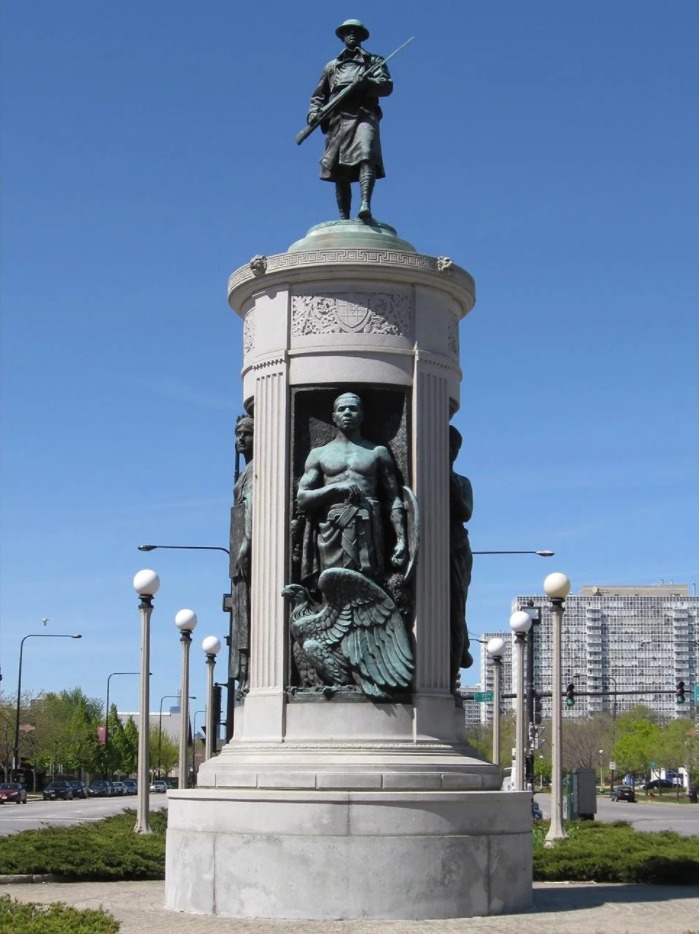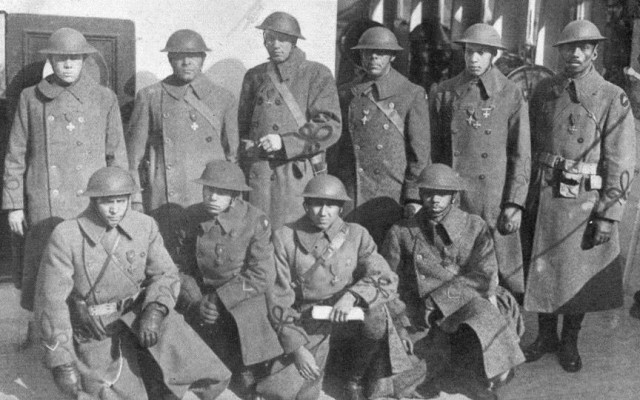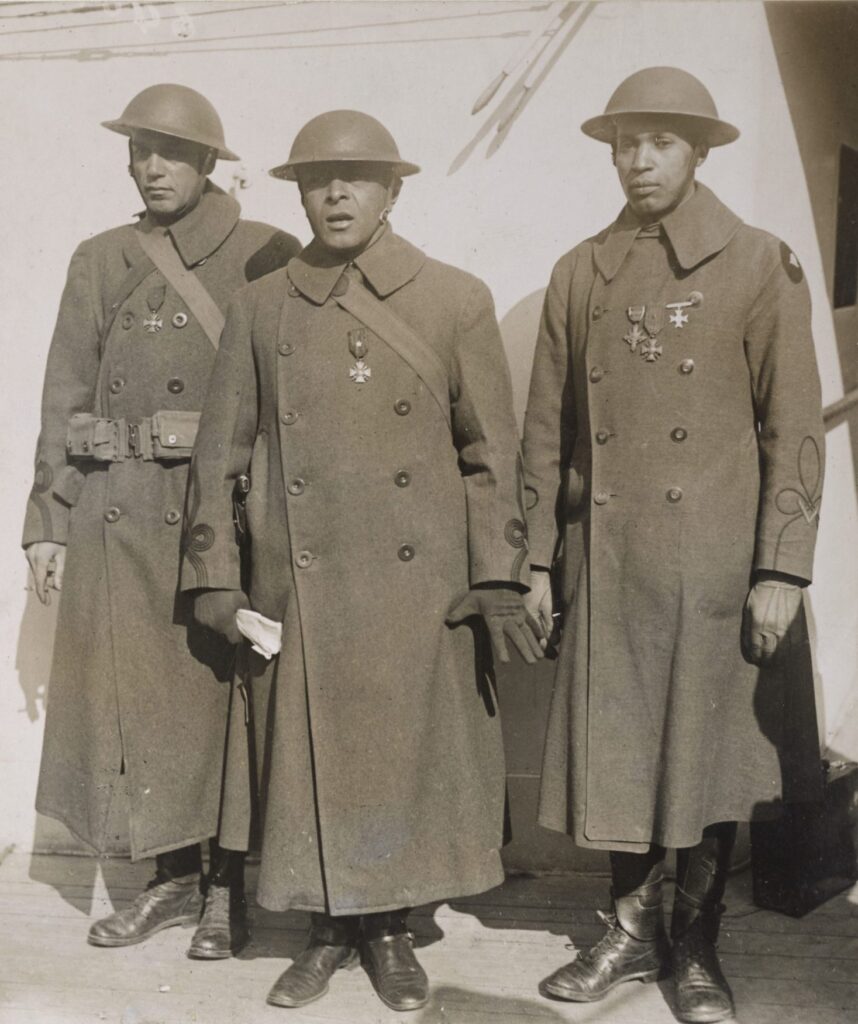By: Kevin Brown
Since the Revolutionary War, African Americans have made countless contributions to the National Guard. Prominent segregated National Guard units distinguished themselves during the First World War, such as Illinois’ 370h infantry regiment. Unlike the Harlem Hell fighters, which formed just before the Great War, the 370th initially organized in 1895. The 370th Illinois National Guard regiment also had the unique distinction of being the only US Army unit commanded mainly by black officers during the First World War.
After President Woodrow Wilson and Congress declared war on Imperial Germany in 1917, African Americans were eager to be recognized as full citizens through military service. When the American Expeditionary Force (AEF) deployed to Europe, the 370th Infantry, like other racially segregated combat units, was detailed to the French Army. This move was made for political reasons since units from African and Caribbean colonies comprised a sizeable portion of French combat forces. Additionally, many racist American officers opposed allowing African Americans to serve in combat roles.
The 370th Infantry Regiment’s officers, who were primarily black, broke a ceiling by demonstrating their leadership abilities. The most famous officer within the 370th was Lt. Col. Otis B. Duncan, a career Illinois National Guard Officer, and a Springfield native. Duncan commanded the 370th’s 1st Battalion. Under his leadership, the unit advanced far ahead of the Allied armies’ main body, only halted by the November 1918 Armistice ending the Great War. Duncan would be one of several officers in the 370 Infantry Regiment to win the Croix de Guerre, one of France’s highest awards for military heroism.
The whole 370th Infantry Regiment saw heavy combat action alongside French forces during the Meuse-Argonne offensive. Its efforts were honored with a victory monument in Chicago created by sculptor Leonard Crunell. German forces nicknamed the 370th the “Black Devils” for their battlefield exploits.
Shortly after the Armistice, Lt. Col. Duncan reflected on the contributions made by the 370th and African Americans during the First World War; in a letter home, he wrote. “We want the people over there to know that we have given our full contribution to this war, that we have fought, bled, and died for the grand and noble principles of the war. And the sadness is that upon returning, we must meet those whose loved ones have lost their lives in this far-off land.”

By Leonard Crunell (Photo Courtesy of WTTW PBS Chicago)
The 370th Infantry Regiment received full honors when they returned to the United States. The unit fought in Italy during the Second World War, participating in the combined Allied assault on Hitler’s Gothic Line. After 1948 370th was integrated as the 178th regiment when President Truman ordered the military to desegregate. Recently, the 178th served in the War on Terror, including a deployment to Afghanistan as part of Operation Freedom’s Sentinel. The unit symbol of today’s 178th includes a nod to the Black Devils with a French Adrian World War I helmet.



